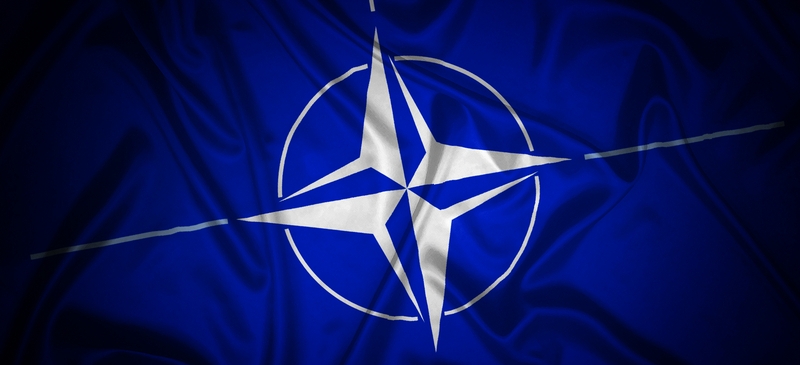
NATO's big bang
In 2002 NATO has a rare opportunity to enhance stability in Eastern Europe and build a new relationship with Russia. At the Prague summit in November, the alliance should offer membership to seven countries - Bulgaria, Estonia, Latvia, Lithuania, Romania, Slovakia and Slovenia.
Such a 'Big Bang' would consolidate pro-western democratic politics, encourage co-operation among the states of the region, help them to reform their armed forces and provide reassurance that they will never again fall under Russia's sway. Further advantages of a Big Bang would be to avoid the divisive issue of choosing among the candidates, and to remove once and for all a potential thorn in NATO-Russia relations. The alliance could then forget about enlargement and focus on priorities such as peacekeeping in the Balkans, military reform and addressing global security challenges. One alternative to a Big Bang is to issue invitations now but make membership dependent on the progress of defence reforms. However, that would foster political uncertainty and disputes over which candidates were ready.
The next round of enlargement will also accelerate NATO's evolution into a more political organisation. Events since September 11th suggest that this change is inevitable anyway. Although NATO members invoked the Article V security guarantee for the first time in the alliance's history, a US led-coalition rather than NATO has undertaken the military action in Afghanistan.
Henceforth, most of the miltary actions that NATO countries are likely to be involved in will be ad hoc coalitions of the willing and able. In the post-Cold War era, the primary role of NATO is to promote stability by integrating states into a multinational framework. The Central and Eastern European states can also contribute a lot to the fight against new threats such as terrorism - but the value they add will be through political support and co-operation in areas such as intelligence and border controls, rather than through military capabilities.
Since September 11th, Russian President Vladimir Putin has sought a much closer relationship with NATO, and offered much practical help in the Afghan conflict. Some western commentators have suggested that Russia should join the alliance. However, Russian membership of NATO would be premature. Putin continues to face domestic opposition to his pro-western policies. The long-term direction of Russian domestic and foreign policies remains uncertain. The West needs to retain the capacity to act independently of, and if necessary in opposition to, Russian wishes.
NATO should, however, respond to Putin's overtures. The new 'Russia-North Atlantic Council' proposed by British Prime Minister Tony Blair could offer a fresh political start. It should become a useful forum for practical co-operation on matters of common concern - such as counter-terrorism, non-proliferation of weapons of mass destruction and research on missile defence. NATO should also state that the door to Russian membership remains open for the longer term.
Putin is unlikely to allow the issue of enlargement to damage Russia's improved relations with NATO. The Russian president recognises that terrorism and weapons proliferation, rather than NATO, are the real threats to Russia's security. Therefore, despite Russia's lingering concerns, NATO should press ahead with an enlargement that includes the Baltic states of Estonia, Latvia and Lithuania. They have made impressive progress in building their democracies, improving relations with their Russian minorities and reforming their militaries. There is a risk that, if NATO exludes the Baltic countries from this round, it may have to admit them in less favourable circumstances in the future.
NATO CAN HELP ASSUAGE Russia's concerns by guaranteeing its access to Kaliningrad and by reaffirming that it has no intention to forward deploy nuclear weapons or large conventional forces. The Baltic states should also sign the Conventional Armed Forces in Europe (CFE) Treaty, which limits tanks and other heavy weapons.
Those who oppose NATO admitting the Baltic states argue that they are indefensible. In a crisis, however, a combination of the Balts' defence forces plus small units of rapidly deployable western troops should be able to provide a measure of deterrence and buy time for diplomacy and the deployment of larger forces.
Among the other applicants, there is no reason why Slovenia and Slovakia should not be swiftly granted NATO membership; Albania and Macedonia are evidently too unstable to join, for the time being. However, Bulgaria and Romania should be allowed to join as soon as possible - even though not many NATO governments support their membership at present. Since the mid-1990s they have made considerable progress in consolidating democracy and reforming their armed forces. Both countries gave vital support to NATO during the Kosovo air campaign of 1999. Neither will join the EU in its next round of enlargement, expected in 2004.
A double rejection by the EU and NATO could seriously undermine reform and stability in these countries. Bulgaria's and Romania's strategic location on Europe's south-eastern fringe makes them essential allies in the battles against terrorism, weapons proliferation and organised crime. If NATO admitted these two countries, plus Slovenia, Slovakia and the Baltic three, it would greatly help to consolidate the currently benign security situation in Central and Eastern Europe.
